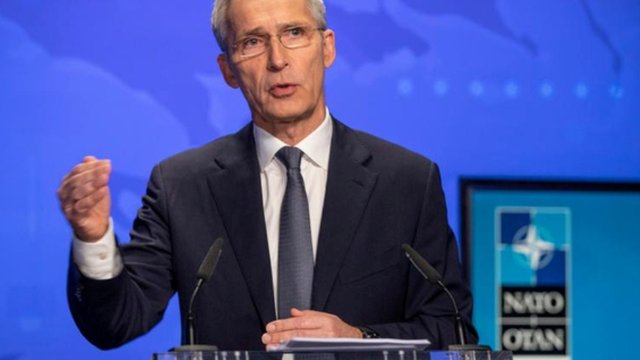Stoltenberg: NATO's large role in coordinating aid, multi-year commitment of financial support will send signal to Moscow that allies won’t abandon Ukraine

NATO Secretary General Jens Stoltenberg is convinced that the alliance's greater role in coordinating military assistance to Ukraine, as well as long-term financial commitments, will not only create a solid framework for further support, but also send a clear message to Moscow that the Russian Federation will not wait for the allies to stop their support.
He said this in Prague on Thursday, speaking at the conference "75 years of NATO: How to keep in on track?" organized by the Senate of the Parliament of the Czech Republic.
Having stated that in recent months there have been “serious delays in the provision of ammunition, military support and serious gaps, for instance, when it comes to air defence and ammunition,” the Secretary General said that for this reason, the Alliance is currently working on “how NATO can have a bigger role in coordinating the provision of security assistance, the delivery of security assistance and training. To ensure that we have a stronger framework to minimize the risks for new gaps and delays in the supplies of weapons and ammunition and training for Ukrainians.” “And also, I have proposed a multi-year financial pledge to ensure that we have more transparency, more accountability, and more predictability for Ukrainians in planning and knowing what they can expect to receive from NATO Allies. And such a multi-year commitment will help the Ukrainians defend their country, but also sends a very important message to Moscow that we are there for the long haul. And that's important, to convince them that they cannot wait us out. We are there to stay. And therefore, I welcome the fact that we are now discussing, addressing, working on how to agree a greater NATO role in coordination of the support and a multiyear financial commitment to ensure more robust and predictable support to Ukraine,” Stoltenberg said.
At the same time he specified that the final decisions will be made at the Summit in Washington, and in the meantime, “we need to just continue to provide as much support as possible, because this is critical for Ukrainians, but also critical for our own security.”
The NATO Secretary General also touched upon the issue of using weapons supplied by allies when “some of them have imposed restrictions on the use of these weapons, others have not. “These are national decisions,” Stoltenberg stated.
At the same time, he noted the dynamics of the development of this war, when at the beginning all the battles took place deep in Ukrainian territory, but now most of the heavy battles take place along the border between Russia and Ukraine in Kharkiv region.
“We see that the Russians can be on the Russian side of the border which is then more or less the same as the frontline. They can be there with their artillery, with their missile launchers, with their airplanes and depots for ammunition and fuel and be at least more safe than they would have been if they could have been attacked also with the most advanced weapons that Ukraine has received. And therefore, I believe that the time has come to consider some of these restrictions to enable the Ukrainians to really defend themselves. We need to remember what this is – this is a war of aggression launched by choice by Moscow against Ukraine. Russia invaded another country, invaded Ukraine, and Ukraine has, according to international law, the right to defend themselves,” Stoltenberg said.








